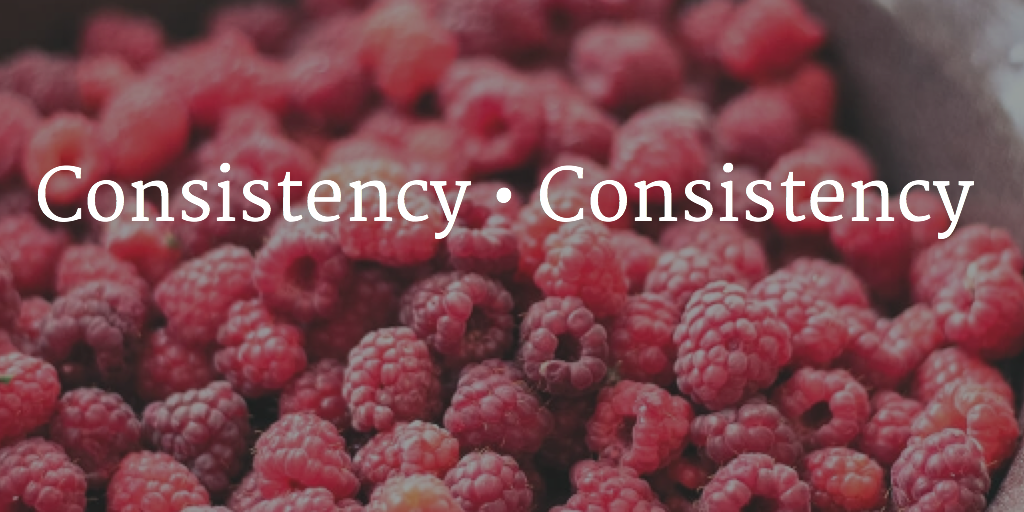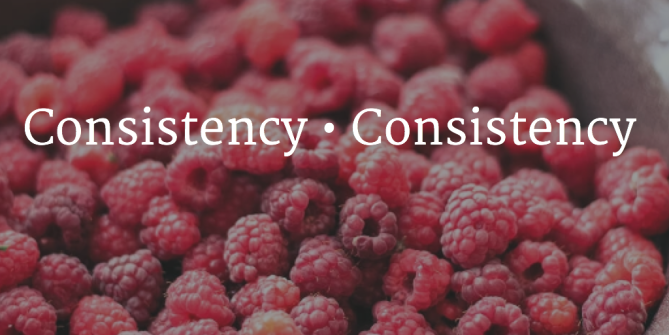We have written about branding before. Usually when non-marketers hear the word “brand,” they think company name, logo and colors. While your company name and logo are an important part of your organization’s brand, they aren’t everything. Branding extends to all aspects of your marketing communications (tone, timing, content, channels, etc.). Consistency builds your brand.
Branding and expectations
I was reminded about branding consistency recently when I received a monthly newsletter from a local non-profit. I’m a regular reader of their newsletter, so in each issue I expect a longer update about the organization’s current theme and then a few brief snippets or photos from recent events, along with their standard contact information and call to action. Their tone is consistent, their content or news is the same length (I know how much time it takes me to read it), and the newsletter comes at the same time every month. I expect this from them.
The key here is “expect.” Managing your brand is about managing customer, donor/supporter, or employee expectations. It’s that implied “contract,” if you will, that this is the way your organization talks or writes, this is the style of language we use, this is when and how we do various marketing activities. Your target audience knows and expects this. Changing the “contract” without explanation can be harmful to your brand.
Consistency in tone
When we talk about tone, we’re talking about your organization’s style and voice. Companies that pay attention to their brand will work hard to develop a voice that is their own and reflects the values that are important to them. Some organizations are fun or more casual (like Ben and Jerry’s), while others are more businesslike or serious (think, a hospital or bank).
Your tone depends on what you do as well as your audience and goals. But most important, organizations make sure to use a consistent tone in their materials because that’s what their customers, clients or supporters expect from them. A change in voice or tone can cause confusion for your audience.
(An exception here might be if your usual sense of humor backfires and you find yourself in hot water. Striking a more formal tone to apologize would be expected in this case.)
Consistency in timing
Here I’m not only referring to when you post on social media channels (like your blog, FaceBook, Twitter, etc.), but also consistency in when you schedule your other communication activities, like an annual meeting or company newsletter. Your audience learns to expect a regular schedule for all your activities.
Consistency in messaging, content and channels
Consumer magazines are masters at consistency in messaging and content. I can count on one of my favorites, Cooking Light, to have quick and easy recipes, plus an ingredient/shopping list in every issue—not to mention their index of recipes at the back. When they change things, it makes me crazy (especially if I don’t like the change)! Magazines like Good Housekeeping or Ladies’ Home Journal have their magic formula as well (my mother-in-law’s magazines come to our house so I see their covers regularly). In each issue, they have an article on home or office organization, special recipes, health topics and that ever-popular tummy-fat-blasting-technique. While the general content areas are the same every month, they don’t repeat the same headlines or feature the exact content in every issue. There’s always an intriguing difference that keeps their readers loyal.
The same holds true for your marketing channels. When you start a blog, establish a Twitter feed, or set up a LinkedIn page, stick with the channels. Your target audience will expect you to be there regularly and be consistent in the type of content you share. Neglecting your channels or participating sporadically won’t help build an engaged community and will detract from your brand.
Consistency is key to growing your brand
A lack of consistency in your organization’s communications keeps everyone guessing and makes it difficult to build a strong brand. It takes hard work and discipline, but the results will strengthen your brand and set your company apart from the rest.



